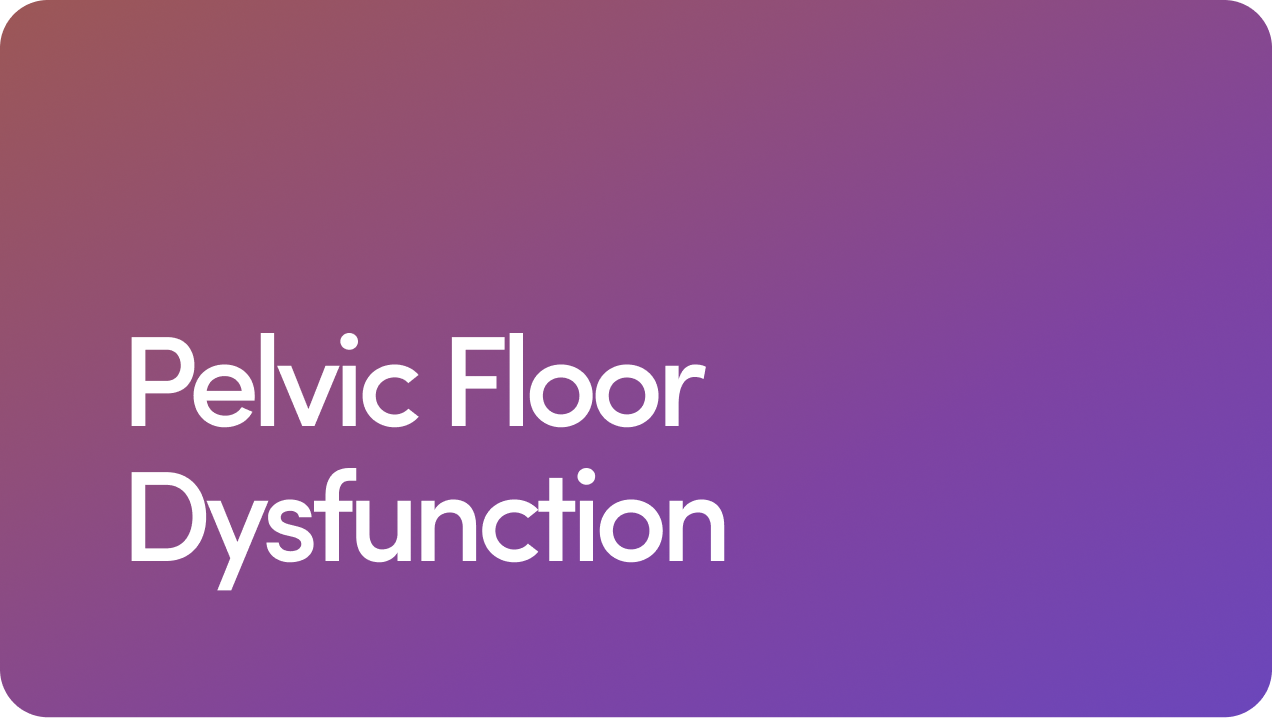Content
Enjoy sex like you used to
Does Sleep Apnea Cause Erectile Dysfunction?

Do you struggle to get or maintain erections and have trouble with snoring in your sleep? Sleep apnea and erectile dysfunction (ED) are more connected than you might think.
Your overall health plays a major role in your ability to get and maintain strong erections. A healthy heart, balanced hormones, and good mental health all contribute to erectile function.
Sleep apnea — a condition where you stop breathing for short bursts while you sleep — can mess with more than just sleep. It’s linked to a higher risk of health problems.
And a growing body of research suggests a connection between sleep apnea and ED.
Let’s dive into the evidence and break it all down.
Content
What Is Sleep Apnea?
Sleep apnea is a sleep disorder where your breathing stops and starts repeatedly during sleep. It’s part of a group of conditions called sleep-disordered breathing.
These interruptions can last seconds or even minutes, and can happen multiple times throughout the night. Even if you’re in bed for hours, sleep apnea can lead to poor sleep quality and leave you feeling unrested.
In one extreme case from 2018, researchers documented a woman whose breathing stopped for nearly 4 minutes.
There are three main types of sleep apnea:
Obstructive sleep apnea (OSA): OSA is the most common type of sleep apnea. It happens when your throat muscles relax and cause a blockage in your airways. Estimates suggest it affects about 10 percent of middle-aged men.
Central sleep apnea (CSA): Central sleep apnea occurs when the brain fails to send proper signals to the muscles controlling your breathing.
Complex sleep apnea syndrome: Complex sleep apnea is a combination of OSA and CSA.
What is Erectile Dysfunction (ED)?
ED is a type of sexual dysfunction involving the inability to achieve an erection firm enough for sexual intercourse.
It’s not uncommon to experience erection issues from time to time. But if it happens often, ED could be a sign of an underlying health issue.
Read more about ED in our condition guide.
Experts have been looking into the link between sleep apnea and ED since the 1970s.
Recent studies suggest a link between sleep apnea and erectile dysfunction, suggesting they may share similar physical and psychological causes.
Pauses in your breathing during sleep can limit oxygen levels in your blood. This can leave you feeling tired even after getting a full night’s sleep.
Both conditions are often tied to underlying health issues like:
Other psychological factors
Researchers of a 2022 review concluded that OSA might be a risk factor for ED, though the research was mixed.
Here’s what the studies showed:
3 studies found no significant connection between sleep apnea and ED.
One study reported a higher prevalence of ED in people with a history of heart attack.
One study found ED was more common in Chinese men with OSA.
In 5 studies, 28–78.92 percent (AKA a pretty big range) of people with ED also had OSA.
In 12 studies, 40.9–80% of people with OSA also had ED.
3 studies noted that more severe sleep apnea was tied to higher ED severity.
An older systematic review also found a link between OSA and ED.
Theories on Why ED and Sleep Apnea May be Connected
Any condition that impairs your vascular or neurological health can potentially lead to ED. The connection between obstructive sleep apnea and ED likely involves several factors.
One key theory is that low oxygen levels during sleep trigger vascular and inflammatory issues, including reduced nitric oxide levels. Nitric oxide is crucial for relaxing blood vessels and supporting healthy erections.
Nerve damage to peripheral nerves and their protective myelin sheath could also play a role.
Additionally, men with OSA often experience higher sympathetic activity during sleep, especially during REM sleep, which could impact sexual function.
Psychological factors, like depression, common in men with both OSA and ED, may reduce sexual desire.
Hormonal changes might contribute, too, since studies show that men with OSA often have low testosterone levels.
Symptoms of Sleep Apnea
If you have sleep apnea, you might experience sleep deprivation despite getting enough sleep.
Sleep apnea symptoms might include:
Loud snoring
Gasping or choking during sleep
Waking up frequently through the night
Daytime sleepiness
Difficulty concentrating
Morning headaches
Mood changes like irritability or depression
Risk Factors for Sleep Apnea
Factors that increase your likelihood of developing sleep apnea include:
Obesity. Excess weight can contribute to the narrowing of your airways. Obesity is one of the top risk factors for sleep apnea.
Large tonsils and a thick neck. Having large tonsils or a thick neck can make you more likely to develop an obstruction in your throat when you’re lying down.
Age. Sleep apnea is more common in older adults. As you get older, fatty tissue can build up in your neck.
Biological sex. Men are more likely than women to develop sleep apnea.
Heart or kidney failure. These conditions can cause fluid to build up in your neck.
Family history. A genetic predisposition can increase your risk of breathing issues during sleep.
Lifestyle choices. There’s a link between sleep apnea and smoking, alcohol use, and sedative medications.
Opioid use. Opioid use disorder or long-term prescription of opioid painkillers increases your risk of central sleep apnea.
Premature birth. Babies born before 37 weeks have a higher risk of breathing problems when sleeping, but the risk usually decreases with age.
Health conditions. Some health conditions increase your risk of central sleep apnea such as stroke, amyotrophic lateral sclerosis, and myasthenia gravis.
Risk Factors for ED
ED can develop in anybody with a penis, but some people are at a higher risk than others.
Risk factors for ED include:
increasing age
diabetes
being overweight
low physical activity
cardiovascular disease
chronic kidney disease
high blood pressure (hypertension)
multiple sclerosis
prostate cancer treatment
injury to your penis, spinal cord, bladder, prostate
bladder cancer surgery
certain medications such as some antidepressants
anxiety and depression
fear of sexual failure
high stress in general
high stress about sexual performance
feelings of guilt related to sexual activity
smoking
drinking too much alcohol
using illicit drugs
How Do I Know If I Have Sleep Apnea?
Snoring or gasping for breath during sleep are signs that you might be living with sleep apnea.
If your doctor suspects you might have sleep apnea, they may send you to a sleep medicine specialist for further evaluation.
To diagnose sleep apnea, healthcare providers may recommend:
Polysomnography (AKA a sleep study). This diagnostic test takes place in a sleep lab and involves monitoring your breathing, oxygen levels, heart rate, and brain activity while you sleep.
Home sleep apnea testing (HSAT). An HSAT is a more convenient way to detect OSA. It involves measuring your heart rate, blood oxygen levels, airflow, and breathing patterns while you sleep in the comfort of your own home.
Treatment Options
Treating sleep apnea and ED often requires a multifaceted approach, focusing on the root causes while supporting overall health.
Treating Sleep Apnea
Treatment for sleep apnea aims to improve your sleep quality and reduce complications.
Treatment options include:
Continuous positive airway pressure therapy (CPAP therapy).
CPAP is the gold standard for treating OSA. A CPAP machine delivers a steady stream of air through a mask, keeping your airways open during sleep. Some studies suggest CPAP therapy may improve erectile function in men with sleep apnea.Oral appliances. Your healthcare provider may recommend devices that reposition the jaw or tongue to prevent airway obstruction for mild to moderate OSA.
Surgery. If nothing else works, surgical interventions like uvulopalatopharyngoplasty (UPPP) or maxillomandibular advancement may be an option.
Lifestyle changes. Lifestyle changes like weight loss, avoiding alcohol or sedatives, and improving sleep hygiene might also help with sleep apnea symptoms.
Treating Erectile Dysfunction
The treatment for ED depends on the underlying cause. Treatment options include:
Phosphodiesterase type 5 (PDE5) inhibitors. Erectile dysfunction medications like sildenafil (Viagra) and tadalafil (Cialis) can help increase blood flow to the penis. Shop for PDE5 inhibitors from Hims.
Testosterone replacement therapy (TRT). For men with low testosterone levels, TRT can improve libido and erectile function.
Vacuum erection devices (VEDs). VEDs create a vacuum around your penis, drawing blood into the tissue to facilitate an erection.
Penile implants. If other treatments are ineffective, implants may help restore erectile function.
Psychotherapy. Counseling can help address psychological factors contributing to ED.
Lifestyle Changes for Better Outcomes
Implementing healthy lifestyle changes may help improve symptoms of sleep apnea and ED.
Here’s how to tweak your lifestyle for better sexual health and overall health:
Exercise regularly. Exercise can improve your heart health and reduce stress.
Adopt a healthy diet. Focusing on nutrient-rich foods filled with healthy, unprocessed foods can support your vascular health and hormonal balance.
Quit smoking. Smoking damages blood vessels and can potentially exacerbate ED and sleep apnea.
Limit alcohol consumption. Alcohol can interfere with sleep and sexual function.
Prioritize sleep hygiene. Keeping a consistent sleep schedule, creating a comfortable sleep environment, and avoiding stimulants like caffeine before bed may help you improve your sleep and overall health.
Sleep apnea and ED can have a profound impact on your physical and emotional well-being and your overall quality of life.
Let’s recap what we know about sleep apnea and ED:
Sleep apnea might increase your risk for ED. Research suggests that people with sleep apnea might be more likely to develop ED than people without it.
Snoring and gasping during sleep are telltale signs of sleep apnea. Unless you have a partner who notices these symptoms, you might not know you have the condition.
Both sleep apnea and ED are treatable. Whether you’re dealing with sleep issues like sleep apnea or sexual function problems, help is available.
Think you might be living with sleep apnea? And worried about how it’s impacting your sexual health? Talk to your healthcare provider. They may recommend a sleep study.
Want to learn more about how to spot the signs of erectile dysfunction? Read our guide: How to Know If You Have ED.
7 Sources
- Aulakh PK, et al. (2018). The longest obstructive apnea you have ever seen: A patient with new-onset autonomic dysfunction. https://pmc.ncbi.nlm.nih.gov/articles/PMC5940444/
- Gu Y, et al. (2022). Erectile dysfunction and obstructive sleep apnea: A review. https://pmc.ncbi.nlm.nih.gov/articles/PMC9178074/
- Kellesarian SV, et al. (2018). Association between obstructive sleep apnea and erectile dysfunction: A systematic review and meta-analysis. https://www.nature.com/articles/s41443-018-0017-7
- Mark KP, et al. (2024). Erectile dysfunction prevalence in the United States: Report from the 2021 National Survey of Sexual Wellbeing. https://academic.oup.com/jsm/article-abstract/21/4/296/7614307?redirectedFrom=fulltext&login=false
- Pascual M, et al. (2018). Erectile dysfunction in obstructive sleep apnea patients: A randomized trial on the effects of Continuous Positive Airway Pressure (CPAP). https://pmc.ncbi.nlm.nih.gov/articles/PMC6082539/
- Sleep apnea. (2022). https://www.nhlbi.nih.gov/health/sleep-apnea/causes
- Sleep apnoea. (2022). https://www.nhs.uk/conditions/sleep-apnoea/
Editorial Standards
Hims & Hers has strict sourcing guidelines to ensure our content is accurate and current. We rely on peer-reviewed studies, academic research institutions, and medical associations. We strive to use primary sources and refrain from using tertiary references. See a mistake? Let us know at [email protected]!
This article is for informational purposes only and does not constitute medical advice. The information contained herein is not a substitute for and should never be relied upon for professional medical advice. Always talk to your doctor about the risks and benefits of any treatment. Learn more about our editorial standards here.

Kelly Brown MD, MBA
Dr. Kelly Brown is a board certified Urologist and fellowship trained in Andrology. She is an accomplished men’s health expert with a robust background in healthcare innovation, clinical medicine, and academic research. Dr. Brown was previously Medical Director of a male fertility startup where she lead strategy and design of their digital health platform, an innovative education and telehealth model for delivering expert male fertility care.
She completed her undergraduate studies at University of North Carolina at Chapel Hill (go Heels!) with a Bachelor of Science in Radiologic Science and a Minor in Chemistry. She took a position at University of California Los Angeles as a radiologic technologist in the department of Interventional Cardiology, further solidifying her passion for medicine. She also pursued the unique opportunity to lead departmental design and operational development at the Ronald Reagan UCLA Medical Center, sparking her passion for the business of healthcare.
Dr. Brown then went on to obtain her doctorate in medicine from the prestigious Northwestern University - Feinberg School of Medicine and Masters in Business Administration from Northwestern University - Kellogg School of Management, with a concentration in Healthcare Management. During her surgical residency in Urology at University of California San Francisco, she utilized her research year to focus on innovations in telemedicine and then served as chief resident with significant contributions to clinical quality improvement. Dr. Brown then completed her Andrology Fellowship at Medical College of Wisconsin, furthering her expertise in male fertility, microsurgery, and sexual function.
Her dedication to caring for patients with compassion, understanding, as well as a unique ability to make guys instantly comfortable discussing anything from sex to sperm makes her a renowned clinician. In addition, her passion for innovation in healthcare combined with her business acumen makes her a formidable leader in the field of men’s health.
Dr. Brown is an avid adventurer; summiting Mount Kilimanjaro in Tanzania (twice!) and hiking the incredible Torres del Paine Trek in Patagonia, Chile. She deeply appreciates new challenges and diverse cultures on her travels. She lives in Denver with her husband, two children, and beloved Bernese Mountain Dog. You can find Dr. Brown on LinkedIn for more information.
Education & Training
Andrology Fellowship, Medical College of Wisconsin
Urology Residency, University of California San Francisco
M.D. Northwestern University Feinberg School of MedicineB.S. in Radiologic Science, Chemistry Minor, University of North Carolina at Chapel Hill
Research
Published as Kelly Walker
Cowan, B, Walker, K., Rodgers, K., Agyemang, J. (2023). Hormonal Management Improves Semen Analysis Parameters in Men with Abnormal Concentration, Motility, and/or Morphology. Fertility and Sterility, Volume 118, Issue 5, e4. https://www.sciencedirect.com/journal/fertility-and-sterility/vol/120/issue/1/suppl/S
Walker, K., Gogoj, A., Honig, S., Sandlow, J. (2021). What’s New in Male Contraception? AUA Update Series, Volume 40. https://auau.auanet.org/content/update-series-2021-lesson-27-what%E2%80%99s-new-male-contraception
Walker, K., Shindel, A. (2019). AUA Erectile Dysfunction Guideline. AUA Update Series, Volume 38. https://auau.auanet.org/content/course-307
Walker, K., Ramstein, J., & Smith, J. (2019). Regret Regarding Fertility Preservation Decisions Among Male Cancer Patients. The Journal of Urology, 201(Supplement 4), e680-e681. https://www.auajournals.org/doi/10.1097/01.JU.0000556300.18991.8e
Walker, K., & Smith, J. (2019). Feasibility Study of Video Telehealth Clinic Visits in Urology. The Journal of Urology, 201(Supplement 4), e545-e545. https://www.auajournals.org/doi/10.1097/01.JU.0000556071.60611.37
Related Articles
Related Conditions
 Erectile Dysfunction
Erectile Dysfunction
 Premature Ejaculation
Premature Ejaculation
 Low Testosterone
Low Testosterone
 Retrograde Ejaculation
Retrograde Ejaculation
 Pelvic Floor Dysfunction
Pelvic Floor Dysfunction
 Anorgasmia
Anorgasmia